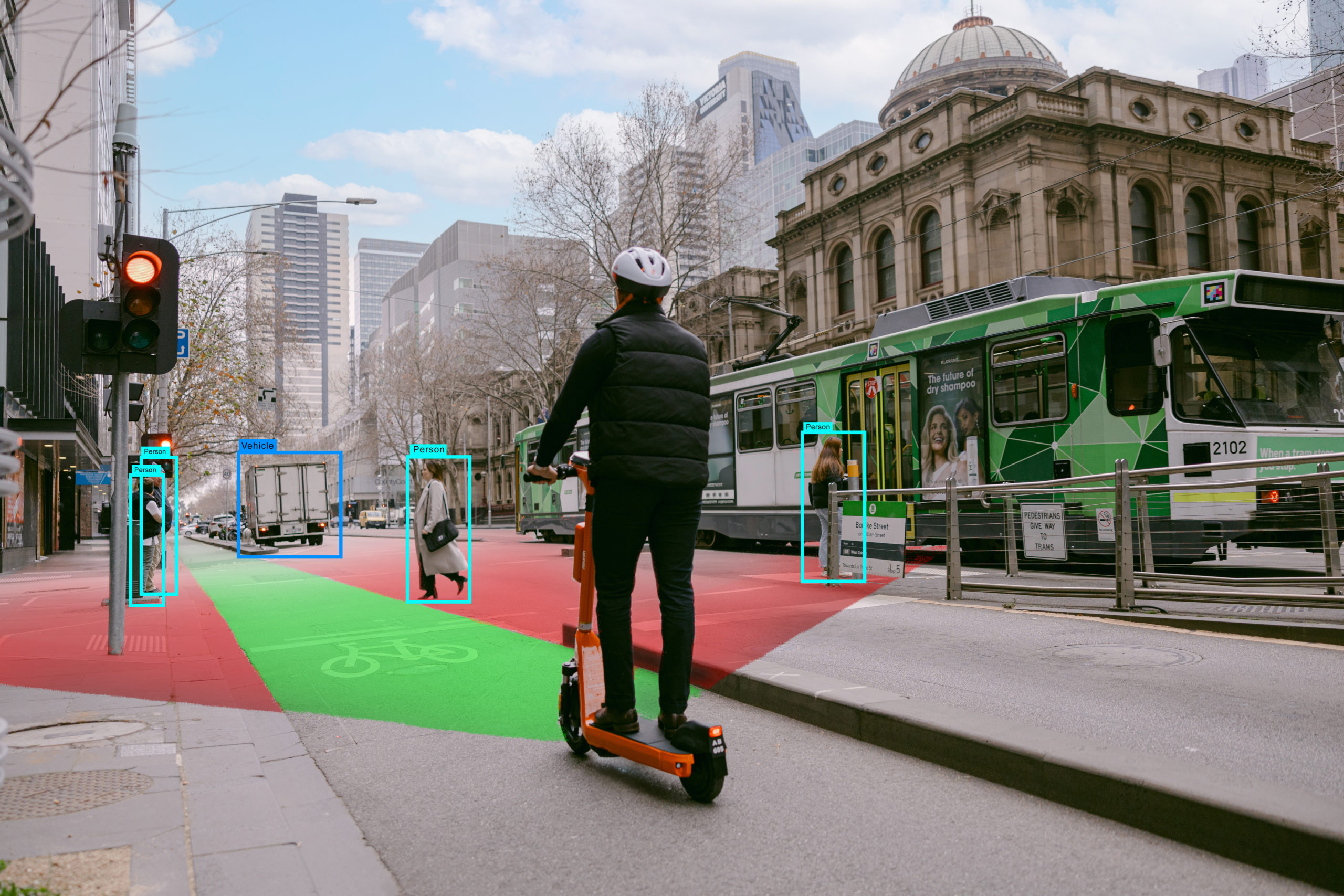Neuron is equipping all e-scooters in its Melbourne fleet with AI-powered cameras to detect footpath riding.
This will make Neuron the first operator globally to deploy a full fleet of e-scooters equipped with AI camera technology in a major city.
A Neuron e-scooter in Melbourne, Australia
© Neuron
This multi-million dollar investment will deploy front-facing AI-powered cameras on 1,250 Neuron e-scooters in Melbourne.
The ScootSafe Vision system uses AI computer vision to detect footpath riding. It then issues a warning in real-time using the e-scooter’s voice guidance. In addition, it can be configured to reduce the e-scooter’s speed until it leaves the footpath.
To enhance safety further, the system also alerts riders when pedestrians are in their path.
In the future, the cameras may also be used to collect data on uneven riding surfaces and potholes to inform speed limits and city planning.
Neuron’s ScootSafe Vision system has been developed in-house. A test fleet in Melbourne has already completed more than 30,000 kilometres to train the technology in recognising the city’s streets and footpaths.
It now takes the system less than a second to detect whether an e-scooter is on the footpath.
During the trial, once footpath riding was detected and an audio warning was issued, almost all offending riders quickly returned to the roadside, bike lane, or approved shared path.
Jayden Bryant, GM of Australia and New Zealand for Neuron Mobility, said:
We are delighted to announce a significant investment into AI-powered cameras, which will be added to our entire e-scooter fleet in Melbourne over the coming months. The results of a six-month trial show that our ScootSafe Vision system has the potential to significantly reduce footpath riding, and we have given our commitment to our councils to make the investment early, even before the trial phase ends.

